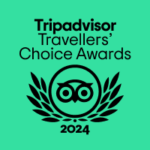Before you travel to Sri Lanka:
Sri Lanka is a fantastic place to holiday, but please bear in mind that it is also a tropical county and requires certain considerations. The following advice is intended as a helpful guide. Suresh Travels recommends, however, that before your departure you visit your local medical centre or a specialist travel health centre for specific advice regarding recommended vaccinations, malaria and dengue prevention,and to discuss any underlying health concerns. It is worth doing this at least six weeks before you are due to travel to allow any new vaccinations time to take effect.
Vaccinations
Commonly recommended vaccinations for short term visits include:
- Hepatitis A
- Hepatitis B
- Rabies
- Tetanus
- Typhoid
It should be recognised that advice can vary. For example, rabies protection is only recommended by some medical centres or some countries. Also consider Japanese encephalitis if travelling in rural areas.
Malaria & Dengue Prevention
You should only consider taking anti-malarial drugs if travelling to the far north of the country (Vavuniya and beyond). Chloroquine and Proguanil are typically prescribed and the course should be started before travel. A prescription is required if in the UK. Dengue fever and Chikungunya are present, particularly after the monsoon rains, and it is important that you protect yourself from being bitten by mosquitoes by using mosquito repellent (see below).
Travel Insurance
Travel insurance is essential.
Travel essentials:
Bring with you sun screen, insect repellent (preferably containing 50% DEET) and a hat. Long sleeved, full-length light coloured thin cotton clothes are widely available, but please consider bringing some clothing that will help protect you from the mid-day sun and from biting insects.
Drinking water in sealed plastic bottles is freely available in much of Sri Lanka, but not without some environmental cost – you may want to think about other options. Chlorine tablets are cheap, light and easy to use. An ultra violet light filter provides very effective sterilization including parasites – these are newly available in pen type format so extremely portable but a little expensive. Many larger travel shops in the UK stock these and other types of portable filters. Also remember to bring any regular medication, anti-diarrheals, simple pain relief, and a torch.
While in Sri Lanka:
Protection from the sun: The sun is strong and pale skin will burn quickly. Consider avoiding sunbathing between 11.00 am and 3.00 pm when the sun is strongest. Wear a good quality factor 15+ sunscreen for short periods in the sun and re-apply regularly especially after swimming. Use higher protections for longer periods. Wear a hat and sunglasses. If you overdo it one day, cover up and stay out of the sun the following day.
Avoiding diarrhoea and dehydration: Sri Lanka has a long-established tourist industry and influenced by this it has a sound hygiene record. For maximum safety, eat freshly cooked, piping hot food and wash your hands (and your children’s) before meals. Many package hotels use buffets where food remains for long periods and late eating should be approached cautiously. Only drink bottled, boiled or treated water and use this for brushing your teeth. Avoid ice and salad if not confident of hygiene standards as well as raw or undercooked shellfish.
Travellers’ diarrhoea can last for up to five days and will often peter out of its own accord untreated. Sometimes a change in bowel habit can be caused by stress, an increase in alcohol intake, change in diet and hot weather. Travellers’ diarrhoea typically occurs during the latter part of the first week of arrival and is often self-limiting, lasting three to five days. The majority of those affected will recover without any specialist treatment. Keeping well hydrated is the most important thing when you have diarrhoea so drink plenty of clear fluids, keep cool and out of the sun. Oral rehydration salts to replace electrolytes are available in many local chemists. Medical care should be sought if symptoms do not improve within a few days, blood and/or mucous is present in stools, or if a fever develops. Medical care should be sought earlier for those with special health risks including the elderly, and immediately for children whose diarrhoea is accompanied by dehydration, vomiting, fever or bloody stools.
Mosquito bites, Dengue fever, Chikungunya and Malaria: Biting insects can be a nuisance and avoiding being bitten is the best protection. Malaria is caused by a species of mosquito that bites predominantly between dusk and dawn. Dengue fever and Chikungunya are present,particularly after the monsoon rains, and are carried by a type of mosquito that bites primarily during the day. You are most at risk of being bitten a couple of hours after sunrise and just before sunset. Wear long tops and pants and apply repellent, ideally one that is 50% Deet based. Symptoms usually appear within 5-8 days after being bitten by an infected mosquito. These symptoms include severe headache, fever, joint and muscle pain, sometimes nausea and vomiting, and a red rash. If you develop a fever that lasts more than three days seek medical advice and do a blood test for dengue fever. There is no particular treatment for this disease other than rest and plenty of plain fluids. The majority of infections clear up on their own after 1-2 weeks. It is strongly advised to avoid taking any ibuprofen and aspirin if you have dengue.
Rabies: Try to stay away from street dogs as rabies is a possible risk. In the event of a bite, seek prompt medical advice. Remember, it is not just dogs that cancarry rabies, cats, monkeys and bats can do as well.
Other bites and stings: Other biting animals include snakes, sea creatures, spiders and scorpions. If you are bitten or stung, try to remember what the animal looked like: its colour, size, shape and markings. This will help with your treatment.
Snakes tend to keep away from humans, but if you are walking at night, take a torch and wear shoes. In the unlikely event of a bite, restrict movement of the limb as much as possible, cover the area with a clean, dry bandage but do not apply a tourniquet, remain calm and try to get to the nearest hospital immediately.
Swimming: There are some fantastic beaches to enjoy, but beware of strong currents in some areas and take local advice. The seas along the West and South Coast are suitable for swimming only during the season from December to April. Even during the season, some of the coastal areas are not suitable for swimming due to reefs and strong currents.
Disabled travellers: In general, health advice is similar to that of other travellers. Please discuss any special requirements in advance with your doctor and Suresh Travels. Our hotel profiles seek to give appropriate advice for disabled travelers, but please also check with your consultant.
Emergency Medical Services in Sri Lanka
In case of an accident or a medical emergency while on holiday, go directly to the emergency department of the closest private or government hospital and you will be seen by an emergency physician.
Hospitals in Colombo
Asiri Central Hospital
114 Norris Canal Road, Colombo 10.
Tel +94 (0) 11 466 5500
Asiri Hospital
181 Kirula Road, Narahenpita, Colombo 5.
Tel +94 (0) 11 452 3300
Lanka Hospitals
578 Elvitigala Mawatha, Narahenpita, Colombo 5.
Tel +94 (0) 11 553/543 0000
Durdans Hospital
3 Alfred Place, Colombo 3
Tel +94 (0)11 5410 000)
Durdans Heart Centre
Durdans Hospital
2nd Floor, Alfred Place Wing
3 Alfred Place, Colombo 3
Tel: +94 (0)11 5410 241, 5410 291
Nawaloka Hospital
Deshamanya, H.K. Dharmadasa Mw, Colombo 2
Tel: +94(0) 11 2304444
Matara
Asiri Hospital (has emergency and paediatric facilities)
191 Anagarika Dhamapala Mawatha, Matara
Tel +94 (0) 41 439 0820-8
Kandy
Lakeside Adventist Hospital
40 Sangaraja Mawatha, Kandy
Tel: +94 (0) 81 2223-466, 2234-605, 4471-668, 2223-466, 2234-605
Peradeniya General Hospital
Peradeniya
Tel: +94 (0) 812388001, 2388002
Local Specialist Consultants
Paediatricians
Dr. Rohitha Seneviratne
Dr. Amidinie Amarasinghe
Physicians
Dr. Harsha Samarajeewa
Gynaecologists
Dr. Hemantha Senanayake
Dermatologists
Dr D.N. Athukorala
Dr. Asoka Kamaladasa
Dentist
Dr. K. Ismail
1, Greenland’s Avenue, Off Isipathana Road,
Havelock Town, Colombo 5
Tel: +94 (0) 2591 469
Cardiologist
Dr. Neomali Amarasena
Booking an appointment with a specialist consultant
To make an appointment, simply call your preferred consultant or clinic and establish a time to be seen. You can also make appointments for a specific consultant through the e-Chanelling service by dialing 225 on the local Dialog mobile service.


